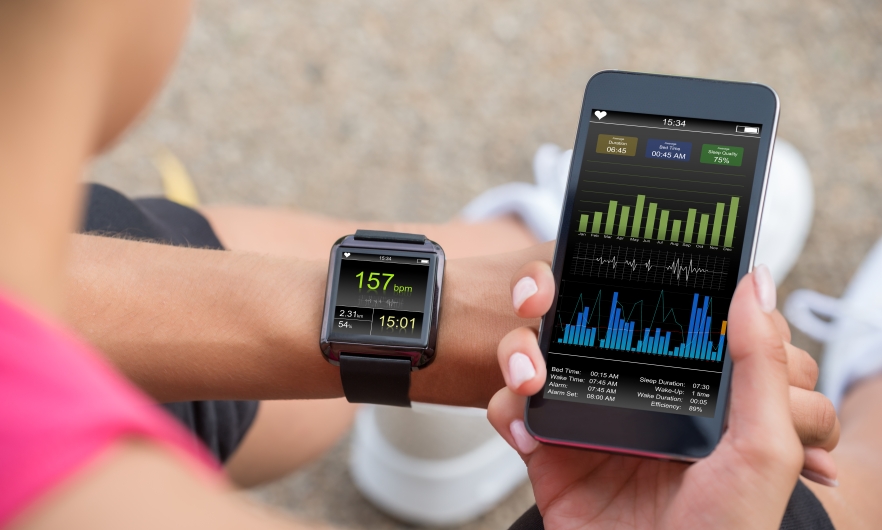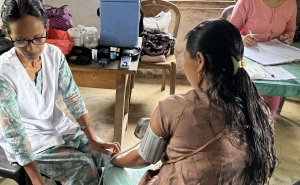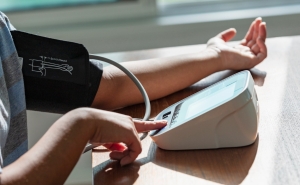Researchers Validate and Improve the Ability of Mobile Health Applications to Predict Mortality in the U.S. Population

A new study conducted by researchers at the Johns Hopkins Bloomberg School of Public Health found that an improved C-Score can identify 87% of individuals living in the U.S. who will experience premature mortality, or dying before the average life expectancy. The C-Score is a mobile health application developed in the United Kingdom that uses an algorithm to predict the risk of early mortality among adults in the general population. Researchers conducted the study in two parts: validating the ability of the C-Score to accurately predict mortality in the United States population and expanding the C-Score to improve its predictive capabilities.
The study was led by faculty and alumni in the Department of International Health at the Bloomberg School, including Shatha Elnakib, PhD ’22; Andres Vecino-Ortiz, MD, PhD ’16, MSc, associate scientist; Dustin Gibson, PhD ’14, MS, assistant scientist, Smisha Agarwal, PhD, MPH ’09, MBA; Antonio Trujillo, PhD, MPP; Yifan Zhu MHS ’20; and Alain Labrique, PhD ’07, MHS. ’99, MS.
The C-Score was originally developed by a team at the British healthcare technology company, HUMA, using the U.K. biobank, a large U.K. dataset which collects comprehensive data from 420,560 men and women. The C-Score integrates a set of modifiable parameters that can be measured digitally or self-reported. These include variables such as cigarette and alcohol consumption, sleep duration, self-rated health, waist-to-height ratio, resting heart rate, and reaction time. The algorithm predicts individualized risk of all-cause mortality through a simple and easily interpretable 0 to 100 score, offering individual users the opportunity to make informed decisions about how best to improve their health and reduce mortality risk.
Researchers at the Bloomberg School validated the original model of the C-Score for use in the U.S. In addition, they expanded the model to include additional sociodemographic variables, such as gender, race/ethnicity, marital status, and educational attainment, as well as simple individualized medical history variables shown to be associated with mortality, using data from the 2005 to 2014 U.S. National Health and Nutrition Examination Survey.
Key findings from the study include:
- The C-Score in its original form could predict mortality in the United States, with 72% reliability.
- The incorporation of a set of basic sociodemographic and medical history variables greatly boosted the model’s predictive performance in the U.S. general population, raising it to 87% reliability.
Consumer demand for wearable technologies that measure health status and predict health outcomes creates opportunities to integrate models such as the C-Score into digital applications. As chronic conditions—such as cardiovascular disease, diabetes, cancer, and chronic respiratory illnesses—drive mortality in the adult population, the availability of models such as the C-Score can help individuals reliably estimate their current risk of adverse health outcomes and take measures to modify their health. The C-Score provides an opportunity to inform lifestyle improvements and drive sustained changes in behavior that reduce risk factors and enhance the health of a population.
This study was supported by Huma. A novel score for mHealth apps to predict and prevent mortality: Further validation and adaptation to the US population using the US National Health and Nutrition Examination Survey Data Set was published in the Journal of Medical Internet Research on June 14, 2022.





